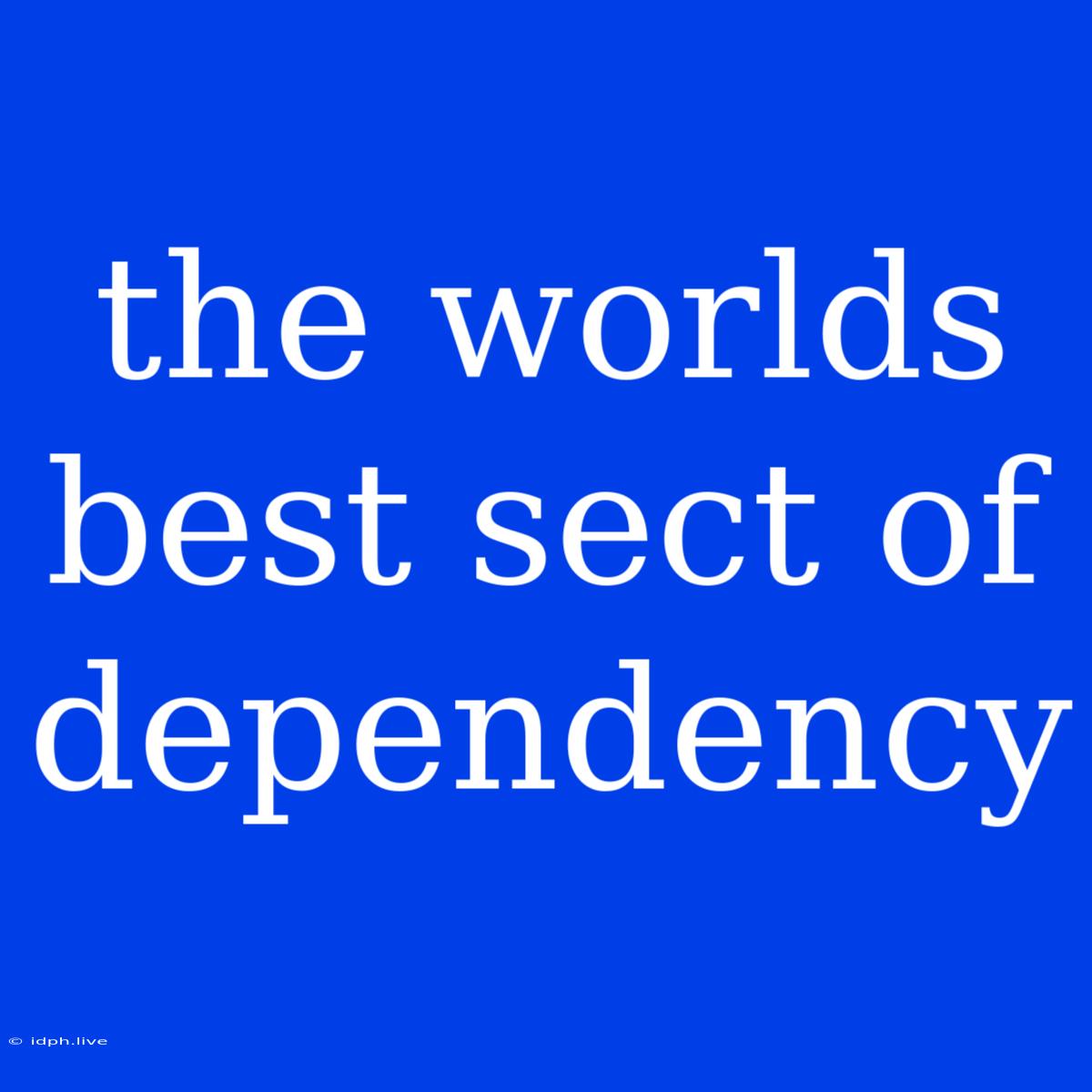The World's Best Sect of Dependency? (A Critical Look at Dependency Theories)
The term "sect of dependency" carries strong connotations of blind faith and potentially harmful ideology. While there's no single "best" sect of dependency theory, it's crucial to understand the evolution and nuances of this broad concept.
Dependency Theory: A Brief History
Dependency theory emerged in the 1950s and 1960s, primarily from Latin American scholars who saw a pattern of unequal power relations between developed and developing countries. The core idea is that developing nations are dependent on the economic and political systems of developed nations, leading to underdevelopment and exploitation. This dependence is often rooted in colonialism, neocolonialism, and global economic structures that favor the powerful.
Key Features of Dependency Theory:
- Unequal Exchange: Developed countries extract raw materials and cheap labor from developing countries, then sell them back manufactured goods at higher prices.
- Center-Periphery Dynamics: The world is divided into a dominant "center" (developed nations) and a weaker "periphery" (developing nations).
- Underdevelopment is Not Natural: Poverty and inequality in developing countries are not inevitable but rather products of historical and ongoing exploitation by the dominant powers.
Different Schools of Thought:
1. Classical Dependency Theory: Emphasizes the role of external forces in perpetuating underdevelopment.
2. Structural Dependency Theory: Focuses on the underlying structures of the global capitalist system, arguing that they inherently disadvantage developing nations.
3. Neo-Dependency Theory: Recognizes the agency of developing countries while acknowledging the systemic constraints they face.
Criticisms and Limitations:
Dependency theory has been criticized for:
- Oversimplification: Ignoring internal factors like corruption and political instability that contribute to underdevelopment.
- Lack of Empirical Support: Some critics argue that the theory is too deterministic and lacks concrete evidence.
- Policy Implications: The theory's focus on external factors can lead to a reliance on external aid and a reluctance to embrace domestic reforms.
The Importance of Nuance
Dependency theory is not a monolithic ideology. While it can be helpful in understanding historical and systemic inequalities, it's crucial to avoid generalizations and recognize the agency of developing nations. Sustainable development requires a holistic approach that considers both internal and external factors.
Moving Forward:
Instead of searching for the "best sect" of dependency theory, the focus should be on:
- Understanding the complexities of global economic relations.
- Developing policies that promote fair trade and sustainable development.
- Empowering developing countries to build their own paths to prosperity.
Dependency theory remains a powerful tool for analysis and a reminder of the need for global justice and equitable development.

